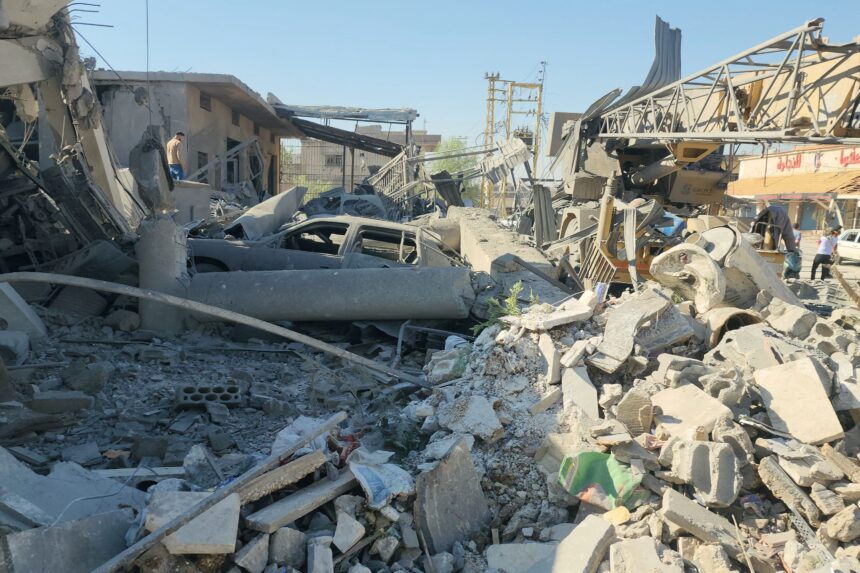BEIRUT/JERUSALEM – The relentless exchanges of fire between Israel and Lebanon’s Hezbollah of recent days have stoked fears the longtime foes are moving inexorably towards all-out war, despite international appeals for restraint.
AFP correspondents in Jerusalem and Beirut talked to officials and analysts who told them what the opposing sides hope to achieve by ramping up their attacks, and whether there is any way out.
Israeli officials insist they have been left with no choice but to respond to Hezbollah after its near-daily rocket fire emptied communities near the border with Lebanon for almost a year.
“Hezbollah’s actions have turned southern Lebanon into a battlefield,” a military official said in a briefing on Monday.
The goals of Israel’s latest operation are to “degrade” the threat posed by Hezbollah, push Hezbollah fighters away from the border, and destroy infrastructure built by its elite Radwan Force, the official said, speaking on condition of anonymity. Israeli political analyst Michael Horowitz said Prime Minister Benjamin Netanyahu wants to pressure Hezbollah to agree to halt its cross-border attacks, even without a ceasefire deal in Gaza, which has been a prerequisite for the Iran-backed militant group.
“I think the Israeli strategy is clear: Israel wants to gradually put pressure on Hezbollah, and strike harder and harder, in order to force it to rethink its alignment strategy with regard to Gaza,” Horowitz said. Both sides understand the risks of all-out war, meaning it is not inevitable, he said.
The two sides fought a devastating 34-day war in the summer of 2006, which cost more than 1 200 lives in Lebanon, mostly civilians, and some 160 Israelis, mostly soldiers.
“This is an extremely dangerous situation, but one that for me still leaves room for diplomacy to avoid the worst,” said Horowitz.
Retired Colonel Miri Eisen, a senior fellow at Israel’s International Institute for Counter-Terrorism at Reichman University, said the Israeli leadership saw ramped-up military operations against Hezbollah as an essential step towards striking any agreement to de-escalate.
“The language they (Hezbollah) speak is a language of violence and power, and that means actions are very important against them,” she said.
“I wish it was otherwise. But I have not seen any other language that works.”
For now, Israeli officials say they are focused on aerial operations, but Eisen said a ground incursion could be ordered to achieve a broader goal: ensuring Hezbollah can not carry out anything similar to Hamas’s 7 October attack. “I do think that there’s the possibility of a ground incursion because, in the end, we need to move the Hezbollah forces” away from the border, she said.
After sabotage attacks on Hezbollah communications devices and an air strike on the command of its elite Radwan Force last week, the group’s deputy leader Naim Qassem declared that the battle with Israel had entered a “new phase” of “open reckoning”. As Lebanon’s health ministry announced that nearly 500 people had been killed on Monday in the deadliest single day since the 2006 war, a Hezbollah source acknowledged that the situation was now similar. – Nampa/AFP


